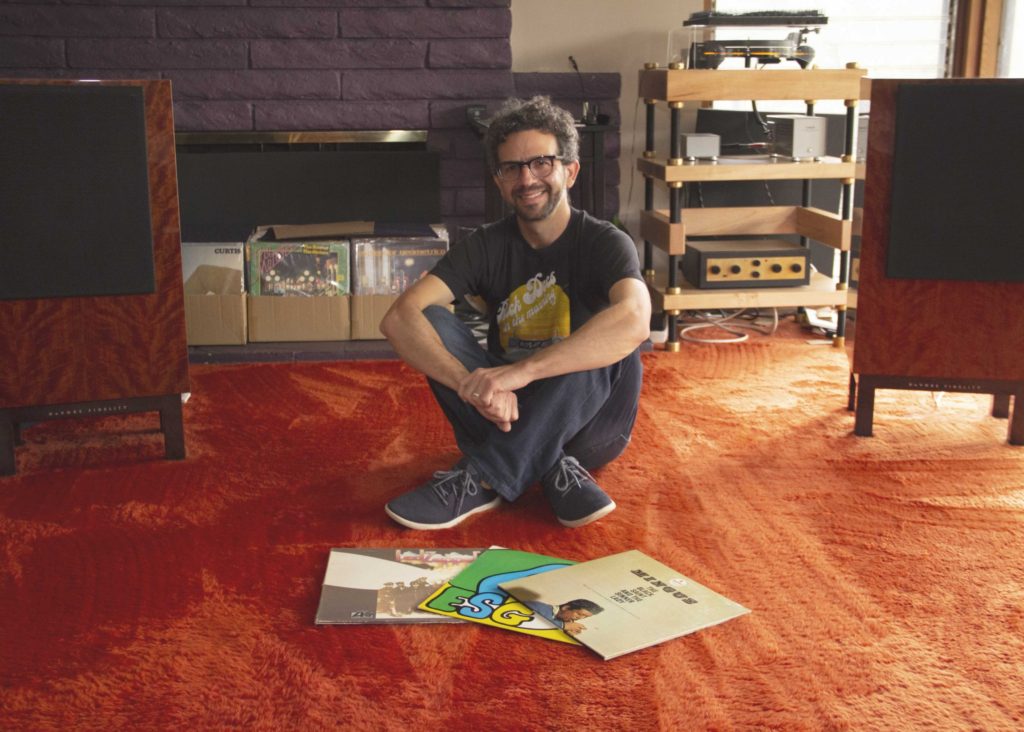
I started writing this blog 3 years ago and since then, a lot has changed in the record business. I’ve noticed that titles that used to be a dime a dozen are becoming more scarce and more expensive. Meanwhile the model for the typical record store is changing. Shops that offer the full spectrum of titles at affordable prices are being usurped by newer, sleeker venues with curated offerings available for a premium.
One of may favorite record stores, Stranded, with stores in Oakland, San Francisco and NYC was one of the pioneer’s of this new model here in the Bay Area, and since they opened 7 years ago I’ve seen quite a few copycats pop up here and there including Originals Vinyl in SF where they offer added services such as ultrasonic cleaning.
But one added service, which we might call “sonic curation” – shooting out multiple copies of the same title, often the very same pressing of that title, against each other to see which copy or copies rise to the top of the pile by virtue of the fact that they just sound plain better than the others, has been unique to one player in the online record market – Better Records. I’ve made no secret of the fact that I am both a fan and a customer of Better Records, and it’s clear from following their growth over the past few years that demand for their product is increasing and that they are selling more Hot Stampers every year.
It was my vocal advocacy for Better Records and their Hot Stampers that put me on the radar of Todd Drootin. Todd worked at Better Records for 10 years until striking out on his own a few years ago and when he founded LP Guru, a vintage record business that specializes in sonically curated records. Until recently Todd was hunting down sonically superior copies of different titles for his clientele on a by request basis, but a few month’s ago he launched lpguru.com where he displays, describes and lists a wide range of titles for sale, all cleaned to optimize their sonic potential and previewed on a high quality system. Only the copies that Todd can say, at least, “this record sounds very good” will be listed, and he offers a 100% satisfaction guarantee on every copy.
When lprugu.com launched I was super excited and also, a little bummed. I had already made several high dollar purchases at Better Records earlier in the year and my limited record budget had shrunk substantially. At lpguru.com I was suddenly seeing copies of titles that were new and fascinating as well as classic titles that were long time residents of my unfulfilled want list. Despite the fact that I really wasn’t “in the market” for any more records, I felt compelled to take advantage of the fact that LP Guru’s was offering some records I really wanted strong copies of, at prices that were substantially lower than those at Better Records. Since its launch I’ve bought half a dozen or so records from LP Guru and so far every record I’ve bought has been a winner.
I’ve been wanting to interview Todd for a long time and when he finally agreed I was thrilled. I’ve been a big fan of his engaging and often personal and heartfelt Instagram posts for a long time now and I was grateful for the chance to ask him some long burning questions and get to know him better.
TBR: You’ve mentioned several times in your Instagram posts that The Talking Heads’ Stop Making Sense was the first record you ever bought. How old were you when you bought it?
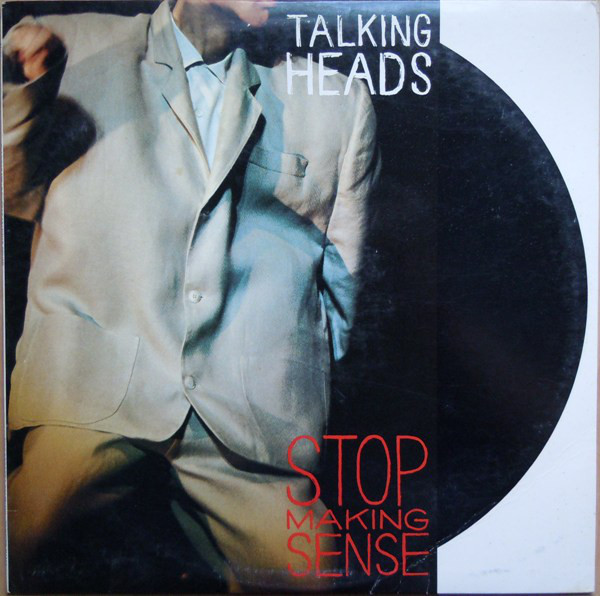
TD: First off, thanks for reading my posts! I imagine I’ve covered that bit a few times as it is literally my vinyl origin story. Stop Making Sense and Tears For Fears’ Songs From The Big Chair LPs were a holiday gift when I was 8. I loved “Burning Down The House” and “Everybody Wants To Rule The World”. I think my big gift from my parents that year was a turntable and then a relative complemented it with my first two records. I was obsessed from the get go. Still love both albums too!
TBR: Since then, have you always stuck with vinyl or did you hear the siren song of cd’s in the 80’s?
TD: I was and have always remained a voracious consumer of music in all forms. Sound quality was not an issue to me at a young age, but I definitely loved the big and tangible feel of a record over other formats. But I wasn’t picky and quickly built a big collection of cassettes and CDs to go along with my records. I liked nothing better than making mixtape compilations of my favorites, and even used to make them somewhat to my mom’s tastes so she would play them in the car. It beat the kind of adult contemporary radio I’d get otherwise. Not to pick on my mom too hard though — she did turn me on to Neil Young!
TBR: I’ve personally been buying records since I the 70’s, the first for me being Bob Seger’s Stranger In Town, but I don’t consider myself as having started “collecting” records until a few years ago. I guess I was late to the party when it came to considering different pressings of a title as opposed to just buying whatever copy I happened upon.
When did you first discover that every title had different versions out there and that some might be more worth having than others, and was this something you were aware of before you started working with Tom Port at Better Records?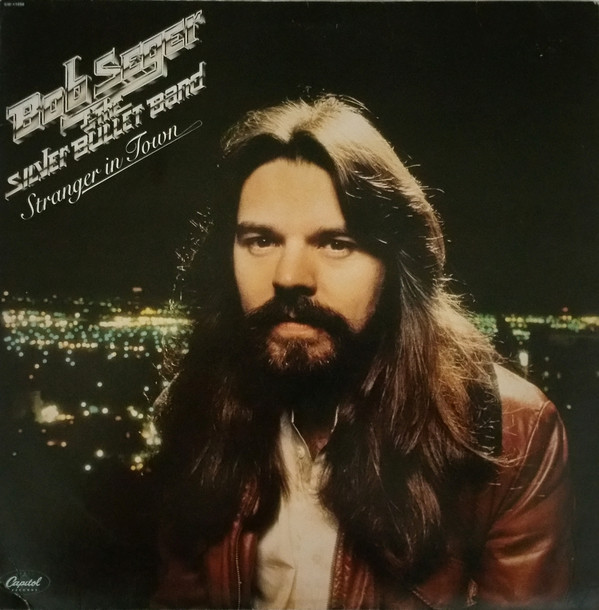
TD: I was always curious about higher quality sound — I remember seeing the gold DCC CD’s at the end of the CD section and being so curious about what would be different — but I didn’t truly become an audiophile until I started working at Better Records. When I first browsed Tom’s website and saw the Hot Stampers — a concept I was entirely unfamiliar with —I had that same curious feeling. So improved sound was always an attractive concept to me well before it was one I could totally grasp. I suppose you could say I was “Pre Audiophile” if that makes sense. I was completely open to it but not there yet.
Learning about the sonic variations between pressings early in my Better Records career was a complete game-changer. It was actually a game-changer for Better Records too, as I helped convince Tom that the Hot Stamper records were what we should focus on primarily. I was in no way ready to start building an audiophile stereo at this point in my life, but finding better vinyl pressings was a small and practical step I could take to improve my listening experience.
It reached into other areas of my life as well. I spent the early part of the 2000’s making music, some of which was released on various small labels or used on television. But I never put a ton of thought into how it was recorded and how to get the best possible sound. I remember telling Tom after getting fully immersed in the program at BR that the new concepts I was learning would completely affect how I approached recording my music and he thought that was an incredible compliment. It would be years before I’d release anything again because I got really picky about it!
TBR: When you first reached out to me via Instagram, you offered to find me sonically strong copies of titles I might be looking for. It’s clear you do this for a number of clients. Is there a good deal of demand for that type of service?
TD: There are so many different ways people find to get deeper into vinyl, and sonically superior copies does happen to be a major focus for me. I’ve definitely encountered a lot of people out there who want to build collections of the best sounding records possible, and really there are very few places for these people to turn if they want to go deeper than just picking up an original copy or whatever the latest heavy vinyl reissue might be.
After doing over a decade at Better Records, I had probably evaluated well over 10,000 pressings specifically for sound quality. The things I learned in the process completely changed my relationship to music, records, and sound — and in a very positive way. I love taking my experience and helping others do the same. For established audiophiles, that may mean tracking down the ultimate copies of their favorites.
But I also enjoy helping more novice listeners learn about the crazy world of pressing variations and unlocking these new dimensions in vinyl and sound for them. I also have clients who just want me to put together boxes of nice records for them using my experience and expertise from doing this for so long. Someone recently asked me for a big box of great outlaw country and it was a complete blast. Some of that stuff can sound amazing!
TBR: I was going to ask you about that actually. In addition to the titles you have listed on your site you periodically offer “Guru Packs.” Would you tell me a bit more about those and if myself or another customer wanted to get one, how you go about putting it together?
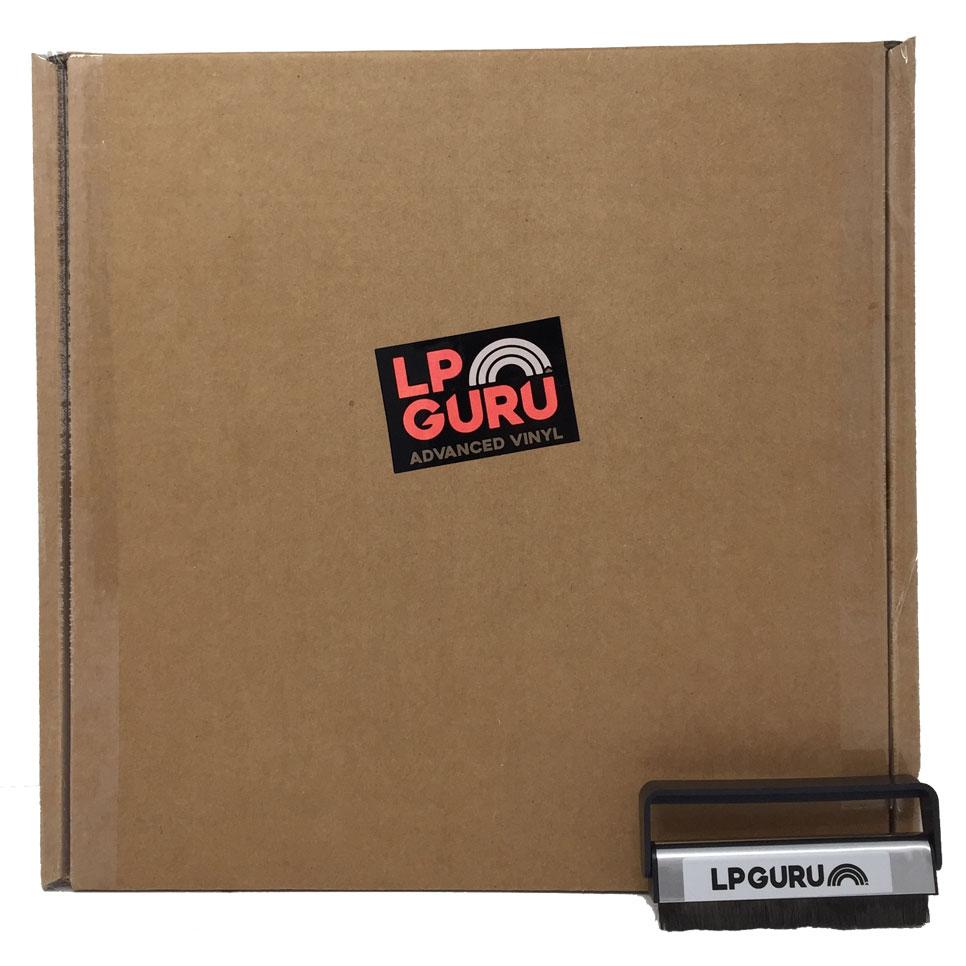
TD: I started doing the Guru Packs because I’ve always enjoyed turning people onto new music. So the idea with Guru Packs was a box of records that would be to a client’s taste while pushing their collection into new areas. I would consult with the client and ask what their interests were, where their collection was strongest and weakest, what they were hoping to gain with my picks, and so on. The Packs went over really well, but they are a ton of work with pretty low margins and just something I haven’t had the kind of time for since the site has been going. Hopefully one day I can offer them again because they are a lot of fun. Every now and then I’ll have a little extra free time, so anyone who’s very interested can drop me a line and check in.
TBR: Regarding your website, when you first announced that it was about to go live I was super curious to see what it would be like, and I had a ton of questions in my head about it before it launched. Based on your lead up on Instagram, I had a rough idea about what titles I might be seeing, but I wondered how you’d price them and what you’d say about the records you offered up. When it finally launched I was intrigued by the way you tried to balance collectibility with sonics along with a range of musical choices. Can you talk about how you approached this when you were building lpguru.com?
TD:I wanted to offer a variety of styles in terms of genres, but also a range of the type of pressings. A huge part of why I wanted to start the LP Guru website was the educational aspect, and I feel like keeping albums on the site that may have appeal beyond the standard audiophile base was important in helping reach the most people. But I also like that it gives the more traditional audiophile a chance to read about some albums that may not have been on their radar.
I feel like having a combination of audiophile and collectible pressings might help people consider what they are getting for their money. Should someone be more OK with paying a high price for a record because it’s rare? If you aren’t reselling it, I’m not sure it matters. Is $75 too much to pay for a copy of an album like Houses Of The Holy that you’ll play a ton and enjoy like crazy, or are premium prices reserved for things pressed on colored vinyl and released in limited numbers on purpose to create scarcity? I know where I’d rather place my resources, but more power to anyone who feels differently.
And the rarer things I offer are still the kind of great copies that I would want to enjoy. Even if I’m not doing a full shootout, I’m cleaning and evaluating the pressings to make sure that they deliver. No matter what type of record people are coming to my store for, I want to make sure they end up with a record that they love.
TBR: For me the opportunity to shop rarer titles that I know have been previewed for sonics, not to mention just the way they play, and that come with a money back guarantee creates a lot of value. I’m sure I’m not alone in my frustration with experiences where I’ve spent a significant sum on a more “collectable” title and then, lo and behold, it’s a dud.
For instance the first record I bought from you is a 90’s remastered version of J. Hendrix’s debut. I had bought the same version just a few months before and it was practically unlistenable. When I read about the record on your site and you wrote that copies of this particular version could be extremely hit or miss it was so exciting to me! I never, ever would have thought to buy that version again, based on my first experience. But the copy you sent me sounds fantastic! That experience created HUGE value for me as there are not a ton of options for good sounding versions of that album.
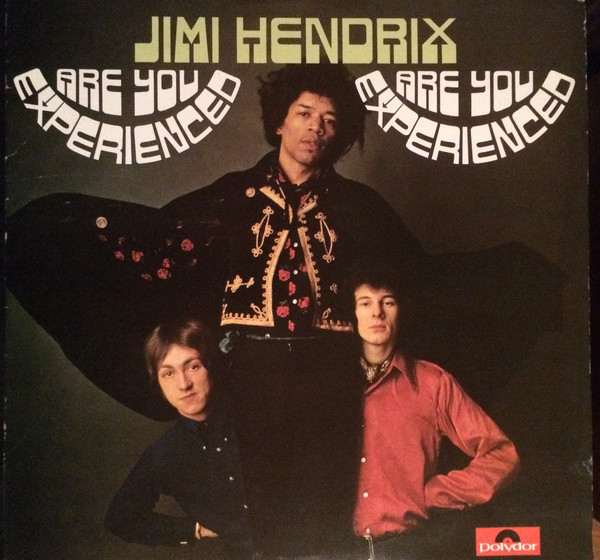
I guess I’m just saying that among the many things you’re doing with LP Guru, I really appreciate the educational aspect you mentioned. I enjoy just reading what you’ve written about the records on your site, even if I’m not necessarily interested in buying them or I already own a good copy.
Regarding sonics, you sell what I would consider to be a staggering number of promo copies, especially white labels. I also notice that these are often the titles that you talk up the sonics on more often. Having embraced the concept of the “hot stamper” I realize that there aren’t many shortcuts to a great sounding record, but you’re giving me the impression that white label promos are such a shortcut. Are they?
TD: I don’t think that promo copies — white label or otherwise — are a clear shortcut to the best sound. One thing that’s important to keep in mind is that I’ve been finding exceptional pressings for clients for a while before I started the site, and I have long been buying whatever pressings might have a chance at being great copies. I would not want to offer a copy to someone as the ultimate without at least trying to hear as many versions as possible. In that process I have built up a large collection of (White Label and other) Promo copies, because it’s often a decent way to know you are getting an early pressing. And having copies like that as part of a shootout when possible is a step I like to take.
Because I mostly like to offer records that sound great on the site, the promo copies that make it up do tend to be great sounding versions. But I can assure you I have stacks of promo pressings that are not superior copies. They just aren’t the kind of records I am prioritizing listing on the site.
One other point I’d like to make is that promo copies do often go for a premium, and that’s a price I’ve paid over the years since the work I do allows me to put an additional premium on that. The introduction of my website after doing my work direct to clients for the first couple years has given me a new platform to move some records and recoup on some that have not been sold as top copies. I’m more likely to list a very good sounding promo copy than a similar sounding stock copy because they can usually command a higher price.
And let’s face it, the white labels look cool in the pictures! I can’t help geeking out on them a bit, even after all these years.
TBR: Exactly! The promo’s do look cool and certainly draw my attention. They also offer more value from a collectibility standpoint which, speaking as a customer, is a nice bonus on top of the value you add in other ways.
Getting back to shortcuts, if I want to find a good or ever great sounding copy of a title and I’d like to do it on my own instead of hiring you or shopping Better Records’ inventory, I need to start somewhere. The place I often start is the county of origin. Avoiding copies mastered and pressed from dub tapes seems like a sensible first step.
In one of your recent Instagram posts you threw some doubt on this approach. Regarding an Australian pressing of AC/DC’s High Voltage you wrote:
“Sometimes a better mastering house somewhere else can do more with a dub copy than with the real thing, and the only way to know what’s best is to use your ears.”
This really threw me for a loop! I mean, if even figuring out which copies were mastered from the original tapes isn’t a reliable approach, are we seriously just left with trial and error as our only valid path to great sounding record?
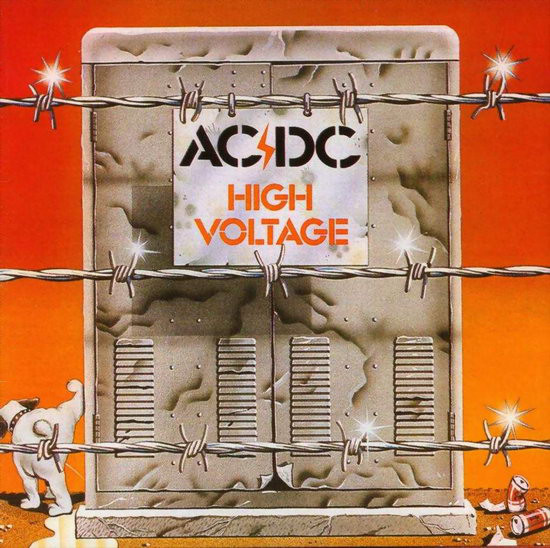
TD: I wouldn’t say it’s ‘just’ trial and error, but also a willingness to get in there and do the hard work is essential to finding those exceptional copies. And while knowing who used the master tape is important and usually helpful in the search, I do believe it is not the whole ballgame (even though I’m sure some would disagree).
I understand why people get upset with the lack of consistent, easy-to-follow steps to getting the best sounding pressings. Like so many things in audio, a very important question to start with is “How far do I want to take this?”. It’s too easy to get sucked into a rabbit hole with this stuff and it isn’t always worth the trouble.
I’ve trained myself to let the quirks and obstacles of pressing sound quality be a source of bemusement rather than frustration. I suppose my line of work requires this attitude, because it would be easy to absolutely lose my mind over the time and money I’ve invested in records that “should” have sounded good and didn’t. But it’s just part of a day’s work for me, it has been since I got into this line of work, and all you can do is move on and try to gain something from each experience. It’s fun knowing a lot about records. It’s even more fun learning something new!
TBR: You recently posted The Go Go’s Beauty and the Beat on Instagram and commented on how some collectors might dismiss the album, but that it deserved attention. You go on to describe how playing a vinyl copy of the album “really floored” you and changed the way you saw the record.
This highlights for me how even though this audiophile hobby can sometimes be tiresome and ridiculous, it often leads us to opportunities to change our relationship with music. Have there been other albums you’ve had this experience with?
TD: I love this question and I think it gets right to the heart of why I and so many others go to the trouble to acquire high-performing stereos and pressings. It may be due to the nature of my work or just a personal quirk, but I feel like every time I sit down to play a record I am hoping to learn something new.
I’d feel genuinely bad for anyone who had to sit through the long list of albums that have evolved for me through audiophile endeavors because it’s practically endless! So let me just give a few examples that have stuck with me.
The first time I heard a great Tea For The Tillerman or Sweet Baby James on a proper system, as opposed to years of hearing these albums on the cassette deck in my mom’s car, gave me a truer appreciation for the craft. Or when I gained a fuller knowledge of the immense depth of Herbie Hancock’s Crossings on a serious copy — a listening session that ended with me buying my current pair of speakers. Or my being blown away by the first B-52’s album and realizing they were so much more than a kitsch act.
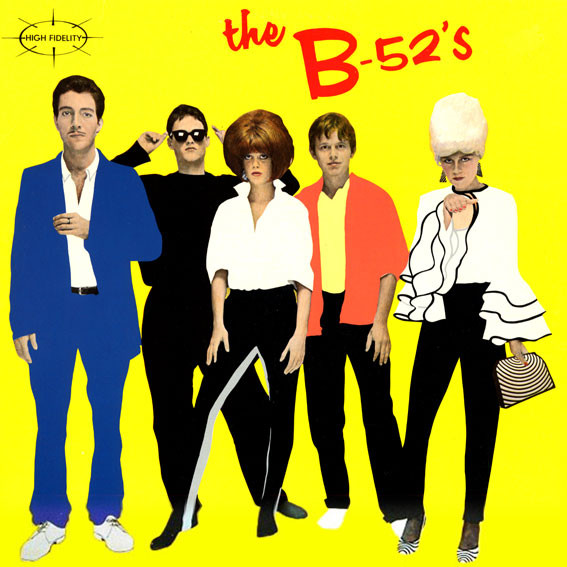
When comparing mono and stereo copies of the debut albums from Love and The Doors I realized just how much the mix choice can change the entire feel of the music. Or when learning about the entire The Beatles catalog where listening to a great pressing reminded me that they were a REAL rock & roll band and not just a group of charming caricatures!
TBR: Thanks for reminding us Todd, that we got into the audiophile hobby and record collecting because they’re both fun and a thrilling way to discover and engage with music and the artists that make it. I for one have lost sight of that on a few occasions.
And thank you for your time and willingness share your knowledge and experience. I’ve enjoyed this immensely!